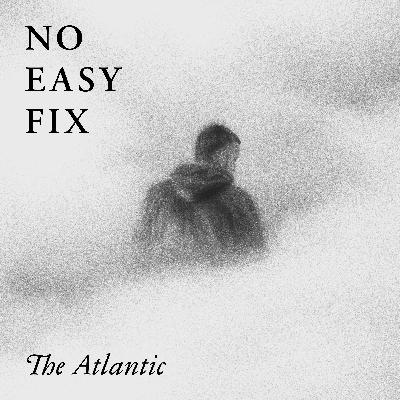
Radio Atlantic
Author: The Atlantic
Subscribed: 14,323Played: 317,761Description
The Atlantic has long been known as an ideas-driven magazine. Now we’re bringing that same ethos to audio. Like the magazine, the show will “road test” the big ideas that both drive the news and shape our culture. Through conversations—and sometimes sharp debates—with the most insightful thinkers and writers on topics of the day, Radio Atlantic will complicate overly simplistic views. It will cut through the noise with clarifying, personal narratives. It will, hopefully, help listeners make up their own mind about certain ideas.
The national conversation right now can be chaotic, reckless, and stuck. Radio Atlantic aims to bring some order to our thinking—and encourage listeners to be purposeful about how they unstick their mind.


























Snarky, egotistical assholes. So typical of the privileged to look down upon the South. Go fuck yourself.
I'm never surprised when parents who are assholes have children who are assholes.
, xxdd xxx xzxzf,dd XD sd Deor 6 addzf cg de we GG 6vvf xxx see re c77 de sf very do d CC s ress to cd3 z. SS dx CC cc VG s xxx. x. DC. dm. 5c. 2. s. sc SS SD SS SS to DS XS, ee needs s, s see s dwe SS Dad dxdad d57v77xxe. c and 7 to zfd d d c6 do as says z. z.5f rcii nxc4f. xc and f z xx3 zzzz. xxx esdrx rrcrs xxx x. dx. vccçw,x. I'm to c xrxe. xxx CC c CC7. x xxx r44r4r 4x4 4 ,x44. ,,, to çf CC *. " z z. z zx xxx C cC CC xxx CC0 ,9 ,,3 Dex. co k bbb,zz , e7 see ad
The snide, snarky, faux laughs are truly repulsive.
one of those rare episodes that I listened to twice, the second to take notes. Very clear, well reasoned, and rationally presented. Many thanks to Jerusalem, and I look forward to your podcast, "Good on Paper."
This episode legit made me cry. How easy it is for people — even those who should be the very best of us — to dehumanize and bully others.
You raised your kid to have a gay voice. Not manly at all.
orange man keep acting like a bully... carefull now just might get a . 308 in the orange noodle !!! carefull now !!!
orange man is a piece of shit... and everyone knows it !!! 👹
Extremely interesting...and sad.
Любопытно!
Just listened to episode 1 - enjoyed the fun and level-headed discussion
why give this conservative shill a platform? Lies!
The in-crowdy, self-congratulatory score for this gathering of shallow folk is 9 out of 10. Who would ever listen to them again?
Great podcast. Love jeff rosen
hbo
great conversation!